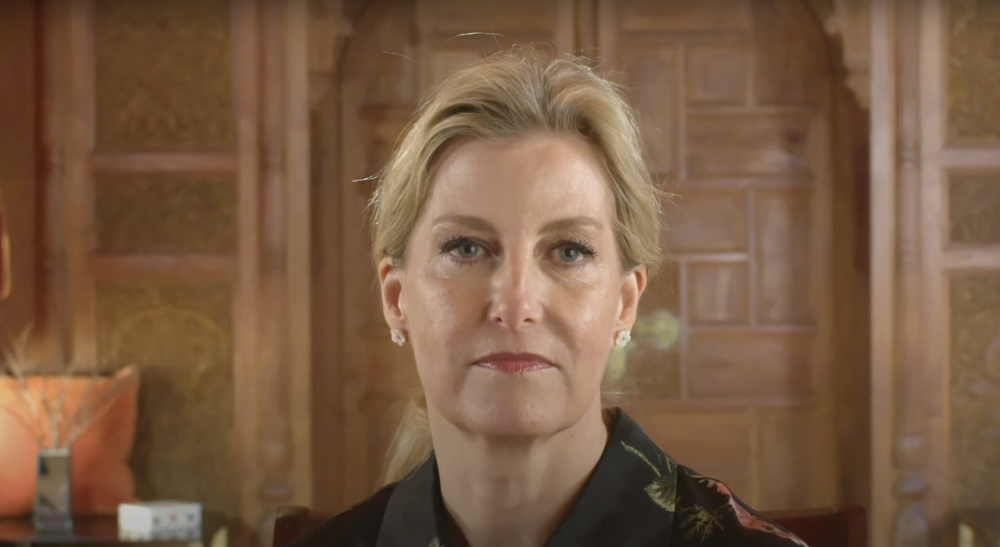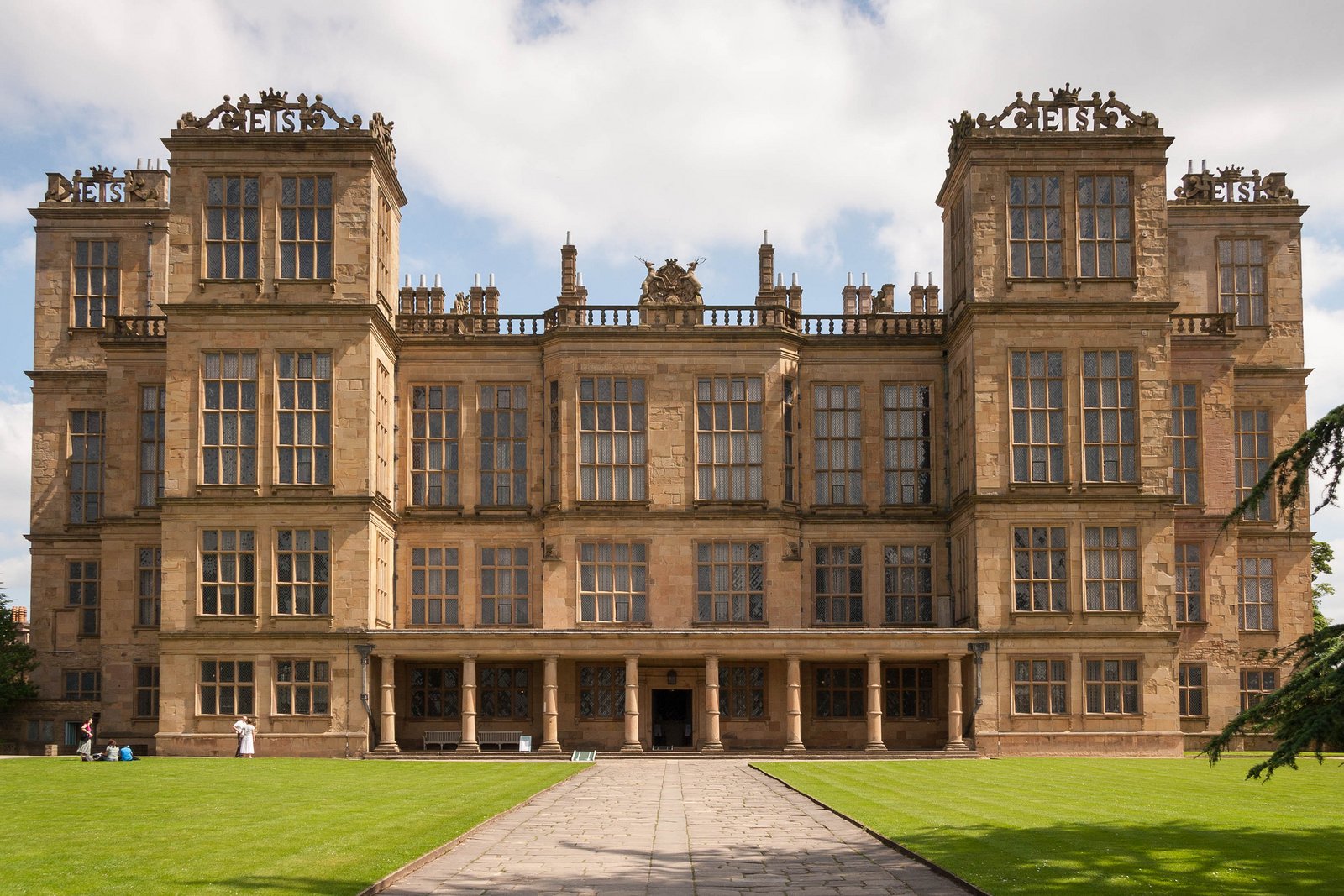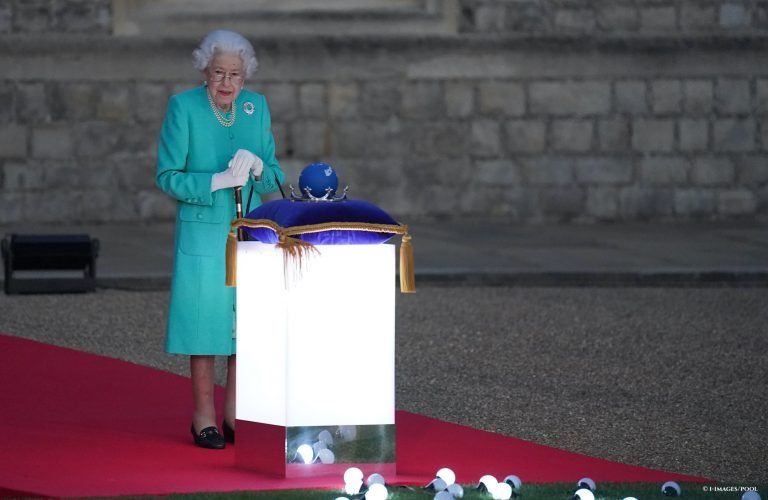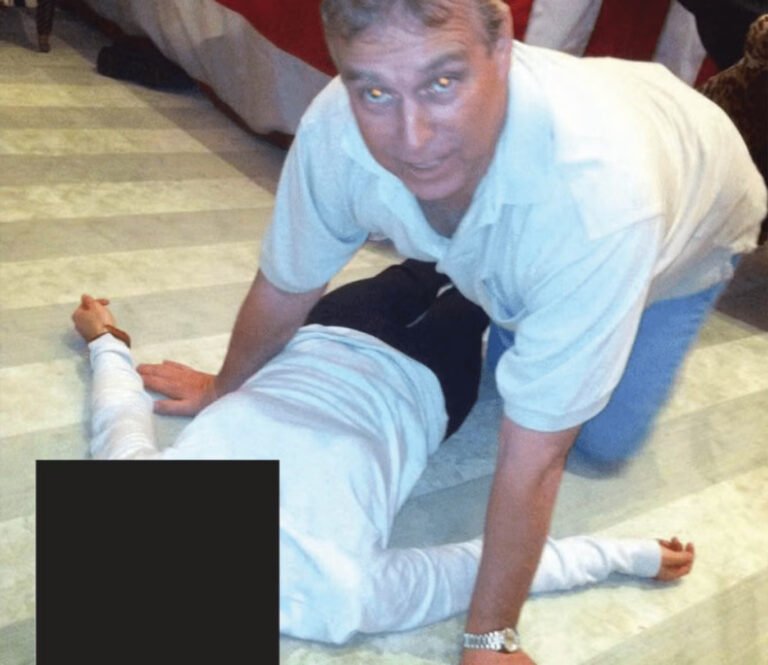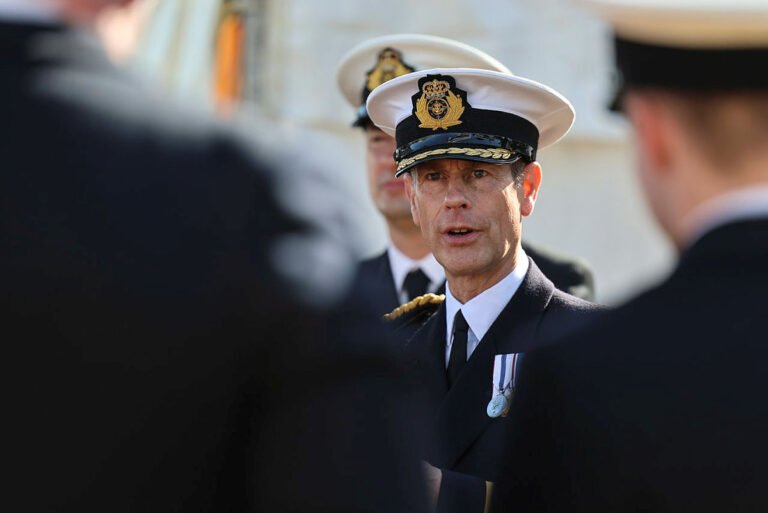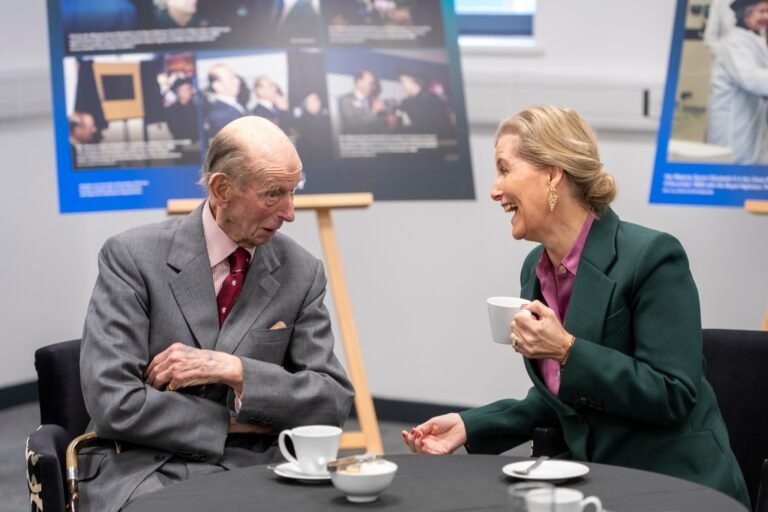Continuing her work in raising awareness around Conflict-Related Sexual Violence, The Duchess of Edinburgh addressed the Restoration of the Conflict-Related Sexual Violence Survivors’ Rights Conference in Ukraine this week.
Sophie took part in the Conference to demonstrate her solidarity with the women, men and children impacted by the war, addressing an audience of international delegates, NGOs and survivors. The appearance came at the request of the First Lady of Ukraine, Mrs Zelenska, and the Foreign, Commonwealth & Development Office.

Opening her address, the Duchess stated how she was ‘privileged’ to be speaking at the Conference, in her role as ‘ champion for the UK’s Preventing Sexual Violence in Conflict Initiative’ and was ‘equally honoured’ to be invited by the First Lady.
Sophie highlighted how the challenge of conflict-related sexual violence across the world from Myanmar to Ethiopia, from Colombia to Sudan, noting that the current crisis in the Middle East to Ukraine is ‘enormous’ and the ‘landscape seems to be getting worse’.
She said the ‘conference is an important opportunity to ensure that those survivors are not forgotten, to shine a spotlight on their bravery and the need to ensure justice and accountability are upheld’.

Speaking about the consequences of conflict related sexual violence, The King’s sister-in-law said that it is not ‘only confined to the survivors and the children born of rape, but is felt by the families as well as whole communities, which is why it is so effective as a tactic of warfare’.
‘Survivors experience long-lasting stigma which impacts their livelihoods and tears families apart’, according to Sophie, whose ‘faces and accounts of the many women who have shared the terrible and graphic accounts of their rape experiences’.
‘While they, as innocent victims, are handed a life sentence of ongoing devastating psychological and physical consequences, the majority of perpetrators go unpunished. This must change.
Rape requires no training, no armoury, no financial backing, but is as devastating as bullets and bombs not only in the immediacy of the attacks but for the rest of the victim’s and their family’s lives. And let’s be clear it is illegal, in fact it is pure evil.’
Sophie stressed that ‘conflict-related sexual violence must end now’ and society ‘must work harder to shift the blame from the victim/survivor to the perpetrator and ensure perpetrators are held to account – whether they ordered it, committed it or facilitated it’.

In order to tackle conflict-related sexual violence, the Duchess said that ‘we must use measures such as successful prosecutions – at the national and, where necessary, international level – and implementation of sanctions as deterrents to prevent CRSV. And we must also ensure we provide holistic, survivor-centred services that support all survivors and do not re-traumatise them, helping them to rebuild their lives’.
Spotlighting the conflict in Ukraine, Sophie expressed that there is a growing body of evidence from international organisations of the ‘atrocities’ that have been committed in Ukraine. She added how ‘the Ukrainian authorities and International Criminal Court investigations are underway and the ICC’s announcement of the first arrest warrants is an important step. But while this jurisprudence is developing in holding perpetrators to account in conflict affected countries, the world needs to do much more to recognise that conflict related sexual violence is a tactic of war and is NOT just an unfortunate casualty. It can and must be prevented.’
Welcoming the discussions that were to take place during the Conference, Sophie hoped that conversations will be based on ‘how best to support and restore the rights of survivors, how we collect critical evidence, how we ensure that victims have timely access to the right holistic support, how we hold perpetrators to account as well as what role the international partnerships have to play’ in tackling conflict-related sexual violence. Sophie praised the survivors who ‘have
spoken out so bravely about their experiences’ and ‘that they are the most powerful advocates who remind us all that we must not turn our backs on the horrors of this crime, we must never forget the survivors’.
The Duchess concluded her address by stressing that ‘we must stand shoulder to shoulder with all survivors to secure justice and holistic redress, and ensure that this crime isn’t an accepted part of conflict. Their rights and their voices must be at the heart of all our efforts to consign conflict-related sexual violence to the history books’.
The Duchess’ work in raising awareness around conflict-related sexual violence dates back to 2019, where the then-Countess of Wessex formally expressed her interest in tackling this area during a Women, Peace and Security agenda and Preventing Sexual Violence in Conflict Initiative reception at Buckingham Palace.
At the event she said, ‘as someone who firmly believes in the equality of men and women, I feel drawn to your cause and to do what I can to help raise further awareness of your work. To help give voice to women and girls who are being denied their fundamental rights as humans and are being subjected to harm and violence as a result of conflict, to promote those who seek to play a part in finding peace, and to support others as they attempt to rebuild their lives’.
Writing in the Telegraph in 2020 to mark the 20th anniversary of UN Security Council Resolution 1325 on Women, Peace and Security, Sophie described her time working to champion the WPS agenda as a ‘journey’. Travelling to ‘places affected by conflict’ she could not have envisaged, she has ‘met inspiring people who have endured the most terrible experiences, where many live in desperate conditions and whole communities see no future’.

